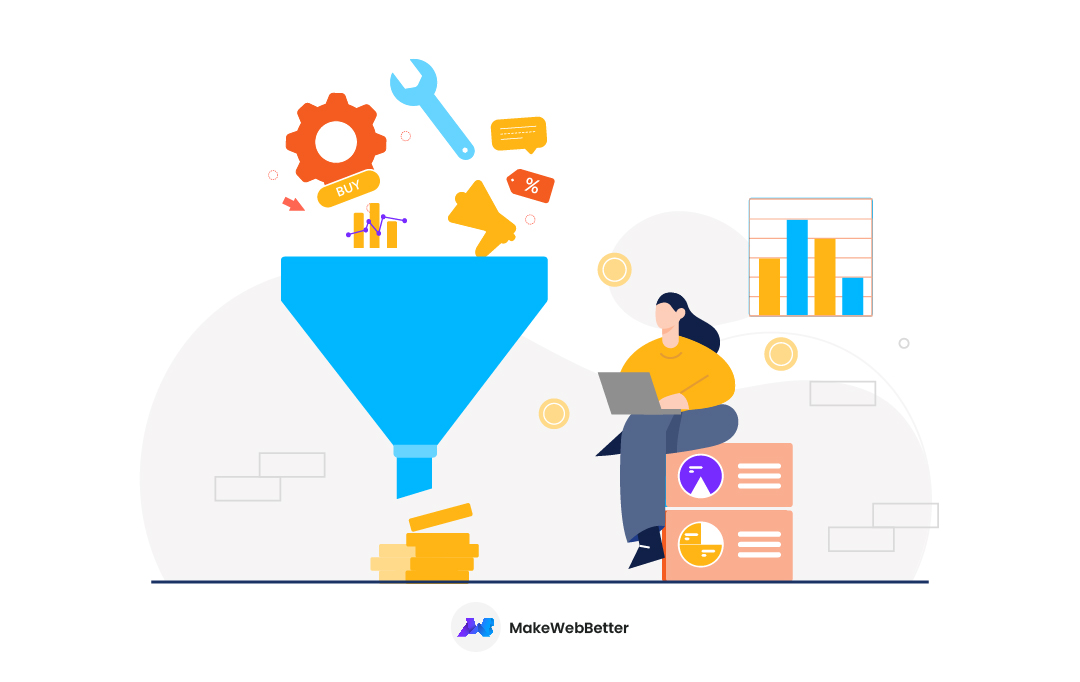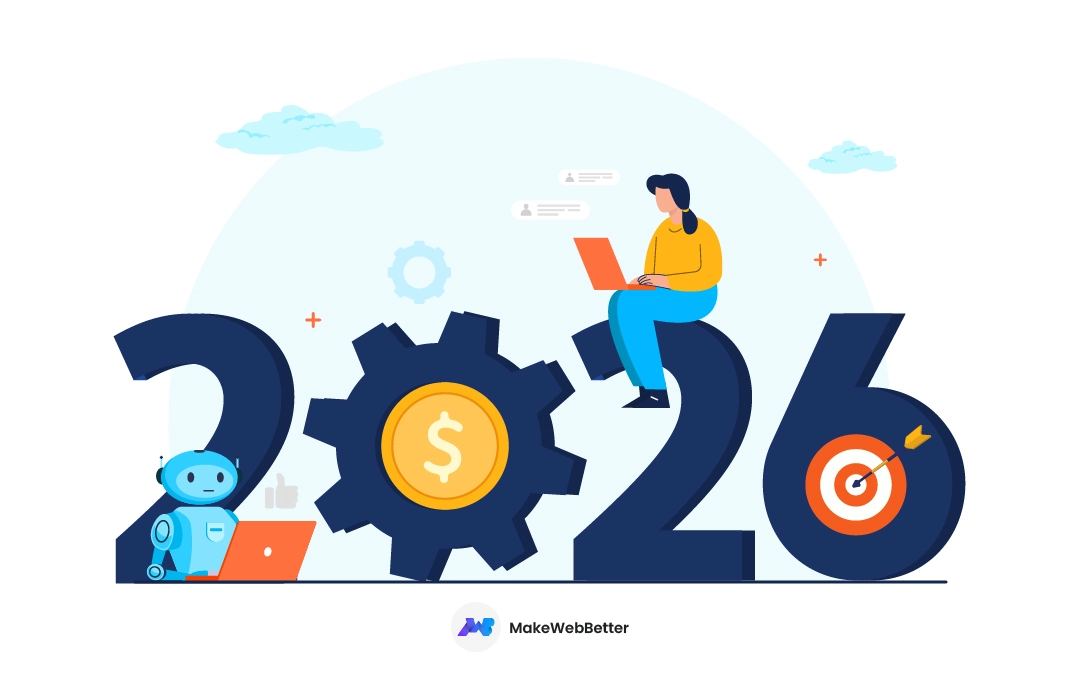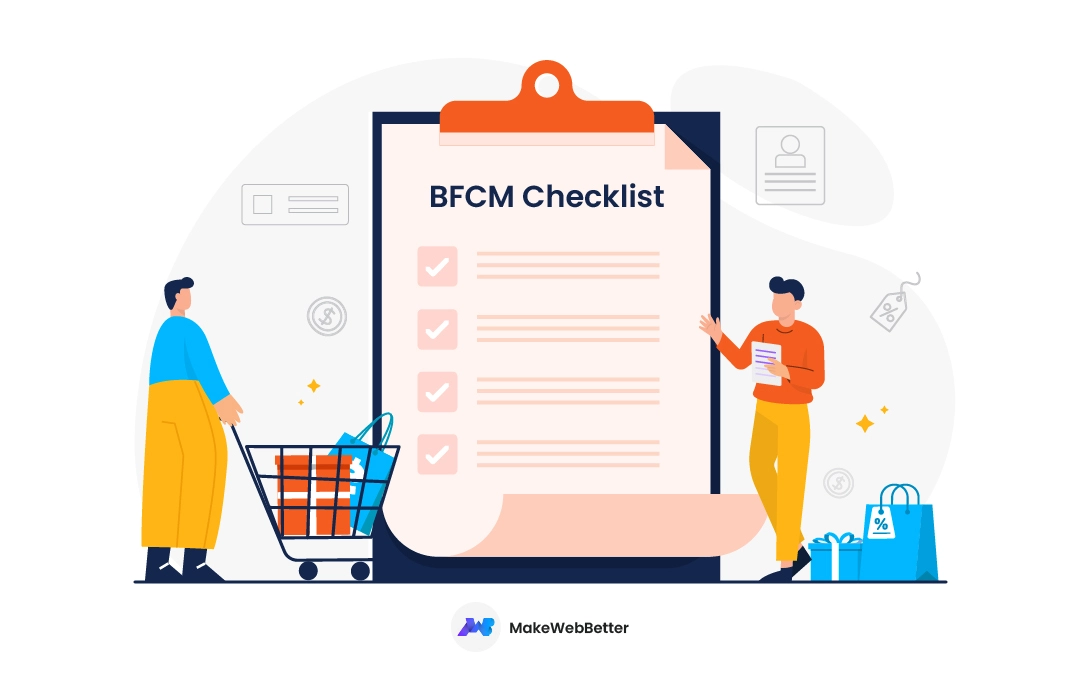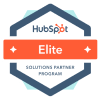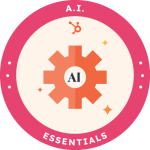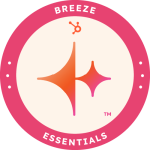“You’re wasting your business potential if you’re unaware of sales funnel analytics!”
Buying is a complex process full of human interactions. But, have you noted how many people have similar interactions as you proceed to push them through the sales funnel?
Moreover, after a customer’s purchase action is completed, even if you’re using a CRM tool, you fail to analyze the consumer’s journey, behaviors, and challenges encountered.
So, today as you read this blog, you’ll get yourself ready for better conversions as you analyze the sales funnel data. Let’s get started.
Table of Contents
What is A Sales Funnel?
Simply put, the journey of a customer from a random visitor to actually becoming your customer by completing the sale process is called a sales funnel.
Consider your eCommerce business and that you want potential customers to visit your website, discover what you do, review the price information, and then convert.
By conversion, I mean they make a purchase, submit a form, or even sign up for your newsletters.
That’s where a sales funnel enters.
It is an analytical technique that provides valuable information on how users interact with your website. Moreover, it outlines the many phases people might experience before converting or bouncing off a landing page.
This top-down strategy functions like a natural funnel because it is wide at the top and narrow at the bottom.
You may design the ideal funnel by analyzing each stage and learning what drives clients to go from one level to the next. That is to say, even though the basic concept remains the same, sales funnel metrics and funnel conversion rate differs from business to business.
How To Set Up Your Funnel? An Overview
The secret to a great sales funnel strategy is to build it from the bottom up. You might as well ask yourself:
- What do you want website visitors to accomplish?
- Do you want people to subscribe, purchase your goods, or use your services?
Once you have a clear picture of the goals you want, trace the steps back to the landing pages of your website generating the maximum traffic.
However, the ideal situation is to have a separate sales funnel strategy for all your goals (if you have more than one).
Moreover, you should be tracking their performances separately.
It’s difficult to create a website sales funnel with high conversion rates. To get it correct, a lot of thought and research must be put into it. The route that your visitors are taking and the kind of material that is helping to shape the customer journey need to be closely examined.
Creating Sales Funnel Strategy
Here’s how to identify and improve each stage of your funnel to create one that converts the most number of site visitors:
- Map the ideal buying process: Consider yourself your prospect and learn how they navigate your website. The best route can then be mapped using this information.
- Define conversion goals: Establish conversion goals and a tracking system for each stage of the funnel.
- Leverage the right content: Present your brand in the best possible way, respond to your prospects’ demands, and set your business apart from your competitors by using content.
- Identify the leaks: There will inevitably be some gaps at each level, regardless of the funnel phases you specify or the website pages you add.
- Bring in qualified leads: After setting up a working funnel, the final step is to review the primary traffic-generating channels and decide which ones align with your buyer persona.
Why Do Sales Funnel Metrics Matter for Sales and Marketing Alignment?
For a sales funnel to succeed, there is a marketing segment. Once you establish your goals, realize your goals and get going for better results.
Aberdeen group says that a synchronized marketing and sales team can lead up to a 32% increase in YOY revenue growth.
- Smoother transitions through each stage of the sales journey result from improved communication between sales and marketing.
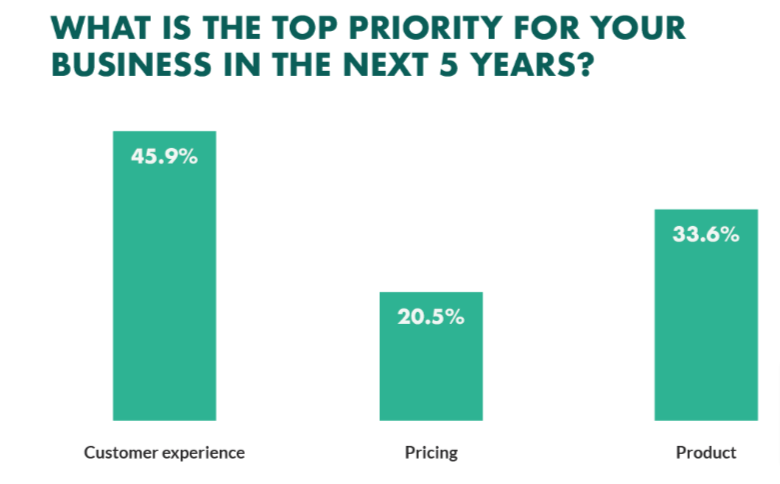
- A better customer experience ultimately results in an improvement in retention trends over time when you use sales funnel data to strengthen your sales and marketing alignment.
According to research by the Temkin Group, organizations with yearly revenue of $1 billion may anticipate earning an average of $700 million more after making customer experience investments after three years.
A better customer experience ultimately improves retention trends over time when you use sales funnel data to strengthen your sales and marketing alignment.
Sales funnel analytics can be meaningful if you look at them with user behavior in mind.
Why are sales funnel metrics important?
Monitoring marketing funnel analytics lets you pinpoint the issue’s precise location.
You will be able to identify the areas that require work, for instance, if your website’s conversion rate is low. You can stop relying on guessing in your marketing, which is typically a waste of time and money, by examining your sales funnel analytics!
Important sales funnel metrics
From initial top-of-funnel lead generation to bottom-of-funnel client creation, the most valuable data points you should consider to create a sales funnel strategy are:
- Leads
- Conversion rate
- Acquisition cost
- Customer lifetime value
- Total sales
- Cycle time
- Average deal size
Tips For Sales Funnel Analysis
1. Create An Optimization Plan
Sales funnel analytics trends helps you better understand where your visitors are leaving your website. Hence, enabling you to find more prospects for expansion and improvement.
Entrepreneurs frequently need to focus more on the volume of visitors that their sales funnel receives. This is based on the fundamental premise that all traffic is equally valued. Even though we know every customer has different purchasing power.
So, it is crucial to make the following distinctions:
- Which customers in the sales funnel are high-quality visitors? They’re going to be your ideal clients.
- Everyone else in this sales funnel is low-quality traffic.
Although the above two types of traffic will always be mixed in your sales funnel, you should constantly strive to improve the quality of that traffic.
So how do you analyze your sales funnel from that point of view and create an optimization plan?
Firstly, determine which traffic source has the highest lead-to-paying customer conversion rate by evaluating your traffic data.
Once you’ve found it, you should focus even more on it. You’d be astonished at how much you can do by adhering to the adage “do more of what works.”
On the other hand, you should stop investing in the traffic source with the lowest lead-to-paying client conversion rate.
As a result, more resources will be available to spend on your top traffic source.
Note that the lead-to-paying customer conversion rate is what we are referring to, not the page visitor-to-lead conversion rate.
Some traffic sources may produce many leads, but those leads aren’t very motivated to purchase from you.
Therefore, instead of chasing the vanity measure of “email subscribers,” perform sales funnel analytics to pay attention to what & who generates revenue for you.
2. Tailor Your Funnel To The Customer
Your sales funnel conversion rate may reveal various distinct consumer categories rather than simply one sort of customer.
For customizing your lead magnets, sales copy, and offers for various clients, think about developing a separate sales funnel strategy for each category.
On the other hand, try a survey funnel. It enables you to use a single landing page for everyone while sending potential buyers along several paths based on their survey responses.
3. Focus More On The Traffic Source That Produces The Best Conversions (High Drop-Off And Conversion Rates)
You can set up the goals you are interested in (such as cart completion or newsletter signups) and use the Goal Flow function of Google Analytics to filter by the source to discover where converting traffic originated.
You can use a sales funnel analysis in a variety of ways, such as:
- Analyzing the number of users who converted at each stage of the funnel.
- You can view conversion rates over time to help you understand how the sales funnel performs throughout the year for consumers that enter the funnel on a specific day.
- Analyze the time it takes for a person to convert at each funnel level.
- The number of times a user completes a particular milestone action before converting.
Sales funnel analytics goes a long way. You can start at the top of the funnel if it has the most significant drop-off.
However, closing that gap will only help your company if you retain customers at the bottom of the funnel.
Increase your marketing efforts to attract new users after getting the users you already have to convert and stay longer.
Hight drop-offs are the hardest to crack.
It’s typically simpler to address lesser friction points for incremental increases than to immediately target large drops (which nevertheless have a major impact on conversion rates). A high drop-off rate might also indicate a problem with the user experience.
You must consider funnels in the context of user behavior for them to have any real value. Pay attention to the destinations of both converted and lost users.
4. Find Issues In Your Sales Funnel, Use Conversion Rate Data
Simply put, any sort of action taken by the visitor on your landing page is called a conversion. Meanwhile, the conversion rate metric shows you what percentage of people who have been presented with the call to action converted.
Consider the following sales funnel metrics:
- The visitor to lead conversion rate.
- Lead to paying customer conversion rate.
- Paying customers to repeat customer conversion rate.
You can use conversion rate optimization to 2x, 5x, or even 10x your sales funnel profits. Here’s how:
- Set up a paid advertising campaign to drive traffic to your sales funnel.
- Sit back and watch what happens. Are people subscribing to your email list, buying your products, and becoming repeat customers?
- Once you have reliable conversion rate data for every stage of your funnel, take a closer look at it. What is the weakest link in your sales funnel? Determine what the problem is and figure out how to fix it.
This procedure may be repeated endlessly because there’s always room for improvement, regardless of how terrific your sales funnel is.
Conversion rate optimization is only sometimes the solution; the issue might not be with the page layout, headline, sales text, or anything else.
Sales funnels occasionally have structural issues, in which case no adjustments can assist.
Therefore, if conversion rate optimization isn’t yielding the desired results, you need to look at the fundamentals:
- Does your offer resonate with your target audience?
- Do you provide enough value that gets people interested in the upcoming offer?
- Does the sequence of the proposals make sense?
When using the Value Ladder sales funnel, remember that in addition to giving potential customers enough value at each stage to earn their trust and advance to the next, you also need to make sure that your offers make sense.
Above all, if your sales funnel is ineffective, you might drop it to create a new one.
5. Upsells And Cross-Sells Can Raise Average Order Value
When you’ve identified and segmented the customers based on their order values, it becomes easier to upsell and cross-sell to them.
Your chances of raising the average order value are guaranteed when you include upsells and cross-sells in your offerings.
Why?
Considering that it is almost probable that a portion of the customers who will accept your initial offer will also buy the cross-sells and upsells.
Additionally, you will be able to raise your customer acquisition cost once your average order value increases.
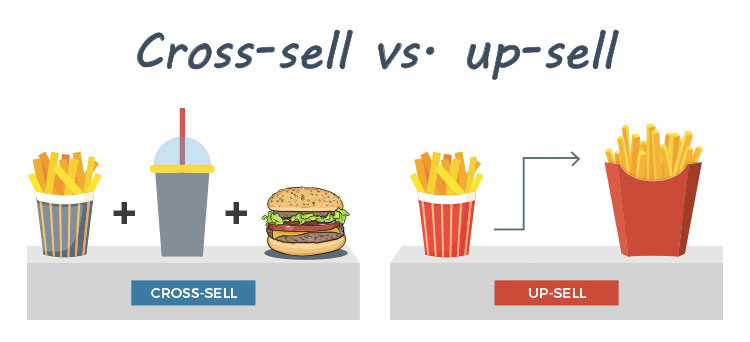
Due to their lower average order values than you, your competitors might need help to match your marketing expenditure, giving you an advantage over them.
The Best Sales Funnel Analytics Tools
You don’t have to wonder what sales funnel management tool to use. Here are a few best sales analytics tools that make tracking your conversion funnel metrics smoother.
HubSpot Lead Management
The HubSpot growth platform’s broad feature set includes traditional sales funnel elements like landing page templates, a system for producing and distributing content offers, and email automation.
![]()
It effectively delivers the best results for your business’s sales, marketing & service needs. Moreover, HubSpot acts as an all-in-one option to attract, engage, delight, and retain customers.
You can:
- Manage all your lead records in one centralized database.
- Track and score lead
- View communication history
- Create segmented lists
- Streamline outreach and more.
Your team will be able to use HubSpot lead management smart capability to activate interaction at precisely the appropriate time rather than manually starting processes or reaching out.
HubSpot pricing options are flexible and start free.
Want To Discuss HubSpot Integrations?
We are HubSpot-certified experts and all-in-one HubSpot service providers.
Plus This
You can use it to create campaigns via marketing automation. It’s an excellent tool for developing and disseminating marketing materials and content. It has a comprehensive set of features that can pique and maintain prospects’ interest in your company.

By automating webinar sign-up and follow-up, offering options for creating evergreen content offers, and enabling Facebook syncing to show leads appropriate advertisements based on where they are in your campaign, this sales analytic funnel tool helps in starting your sales funnel.
Its HubSpot integration also exists.
Plus This software plans start at $39/month.
Systeme.Io
Systeme.io is an all-in-one marketing tool that includes tools to help you launch and manage your online business, including a sales funnel builder, an autoresponder, dropshipping services, business automation, and many more.
This sales funnel analytical tool was created with the entrepreneur in mind and is inexpensive and simple to use.
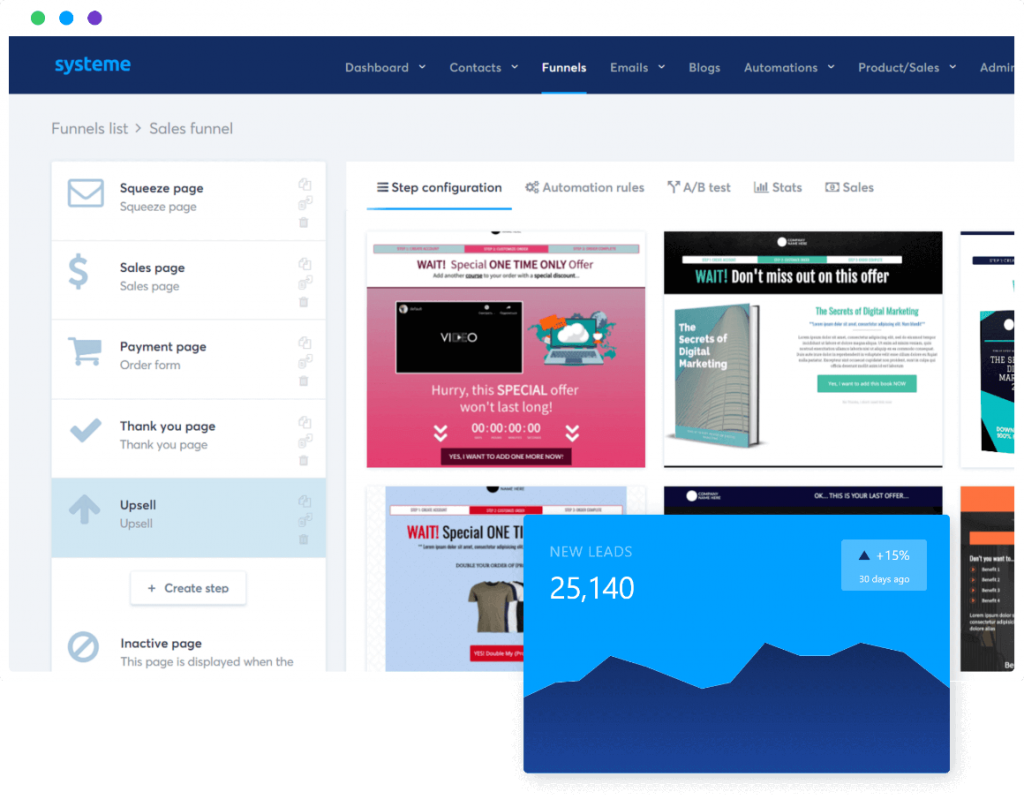
With System.io you can:
- create sales funnels and landing pages with the funnel builder
- quickly set up email campaigns
- deliver email newsletters using the built-in email autoresponder
- create membership websites on each of the three available plans, which is great for creating online courses.
System.io plans start for free.
Wishpond
Although WishPond offers solutions for startups’ needs and budgets, small firms are one of many that can use this for funnel analytics. It is a unique platform for companies of any size seeking a full complement of funnel-enabling capabilities.
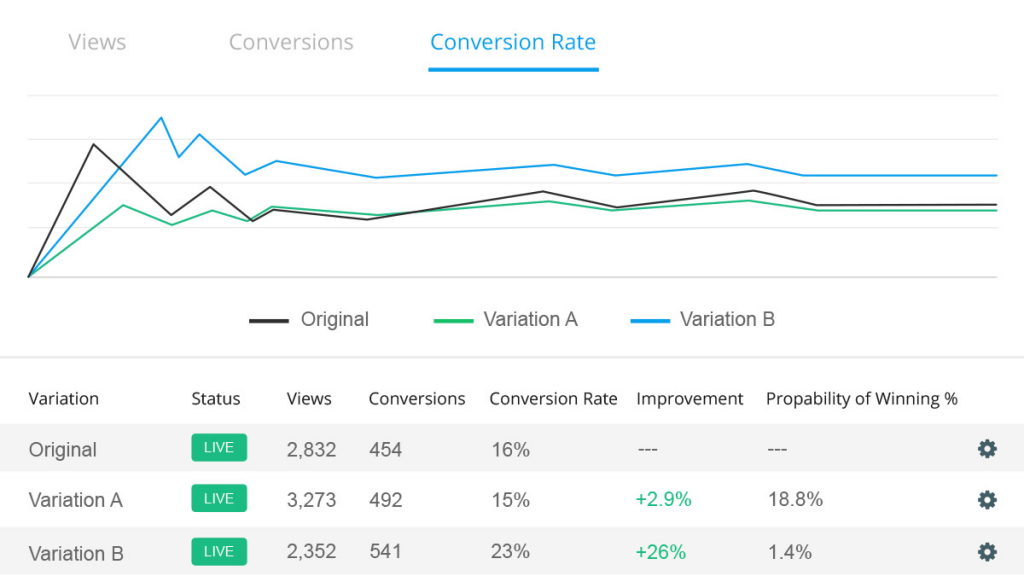
Its four major features include:
- Drag n drop landing page editor.
- Powerful popups & forms.
- Run contests & promos to increase your social list.
- Marketing automation for lead nurturing.
Wishpond plans start at $49/month.
Leadpages
This sales funnel tool is highly recommended for small businesses that can quickly and easily create landing pages, alert bars, websites, etc. You can expand your email subscriber base with opt-in offers, immediate digital file delivery, and content designed for conversions.
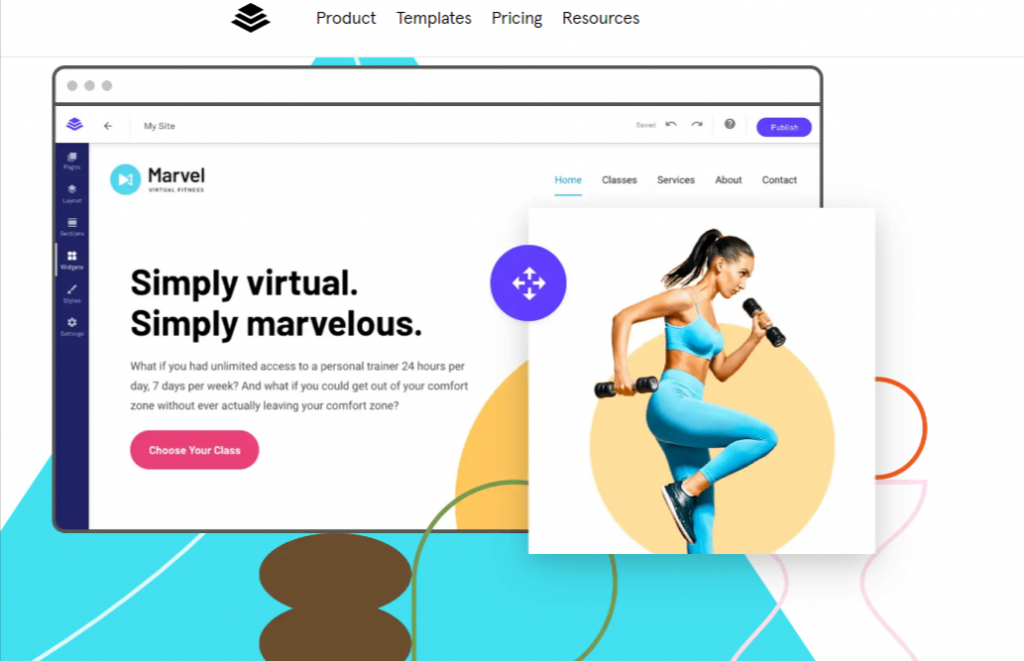
To maximize your results, track your progress in real-time and conduct as many split tests as you like. If you’re looking for affordable funnel analytics software, you should try Leadpages.
Its HubSpot integration also exists. Leadpages plans start at $25/month.
Clickfunnels
A prominent sales funnel tool, Clickfunnels is a reliable and easy-to-use resource. Its quick reporting lets you see exactly what’s working and what’s not in your funnels.
Keep tabs on the open rates, click-through rates, page conversion rate, average cart value, and other sales funnel metrics.

Clickfunnels pricing starts at $87/per month.
Getresponse Autofunnel
An automated tool for building sales funnels, Getresponse lets you create your landing pages, automate your emails, market your services& products, find lost purchases & abandoned carts, and increase consumer conversion.
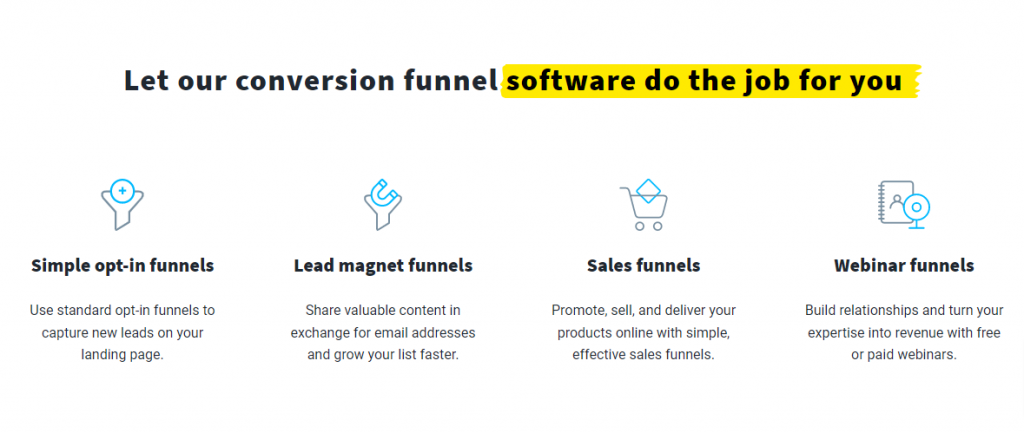
Getresponse Autofunnel pricing starts at $15/month.
Kajabi
The general marketing and funnel solutions offered by Kajabi are fantastic for generating interest in your goods or services and converting that attention into actual sales and new clients.
Its fully integrated, code-free landing pages provide a professional aesthetic with little setup or prerequisite web design knowledge.
Additionally, it has an integrated shopping cart, no transaction fees, and entirely configurable eCommerce checkouts.
The Kajabi platform may not be the best fit for startup and small businesses’ finances, but it is still a powerful tool for assisting your sales-to-funnel approach.
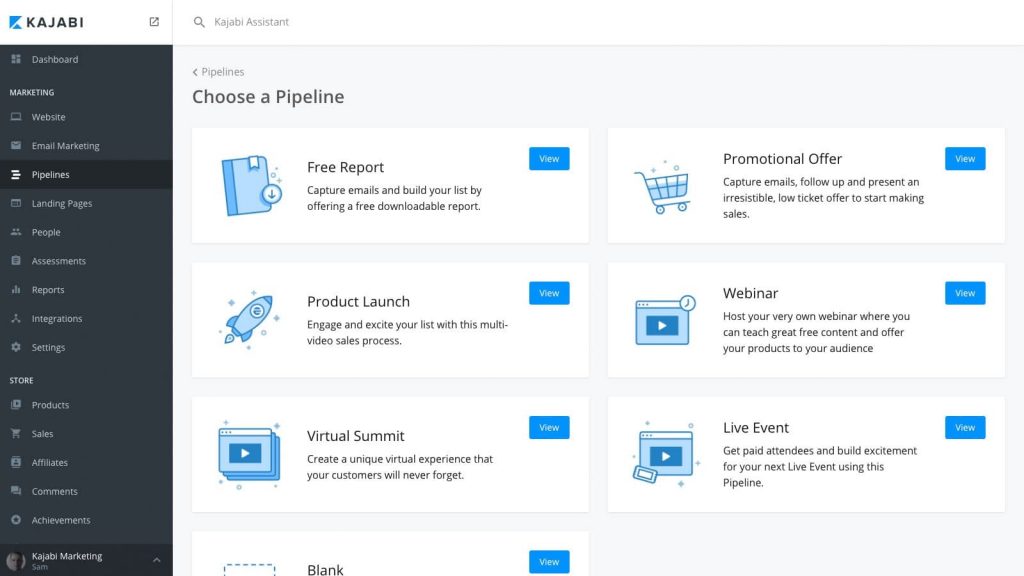
Kajabi plans start at $119/month and they offer a free trial.
Conclusion
Not all prospects will turn into clients, and not all clients will immediately see the worth of your offering. You may perform testing, enhance the user experience, and boost conversions by using sales funnel analysis to identify significant moments in the customer journey.
With that said, one thing you should now consider is a funnel is linear. They have beginnings and ends.
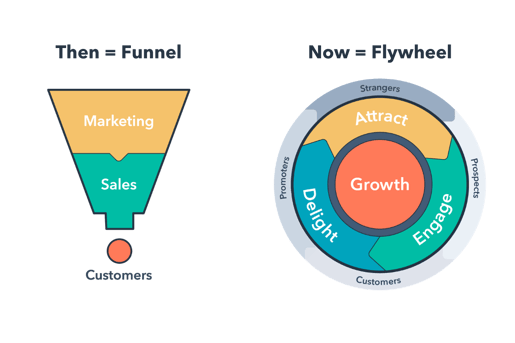
They may be able to convert a prospect into a customer, but after the latter has moved through the funnel, they are lost. Other than gaining their business, there is no deliberate attempt to service them.
Hence, maybe it’s time to dive deeper into the flywheel model. However, not in this post though. Let me know what you think or want to enquire about the sales funnel analytics in the comment box!

